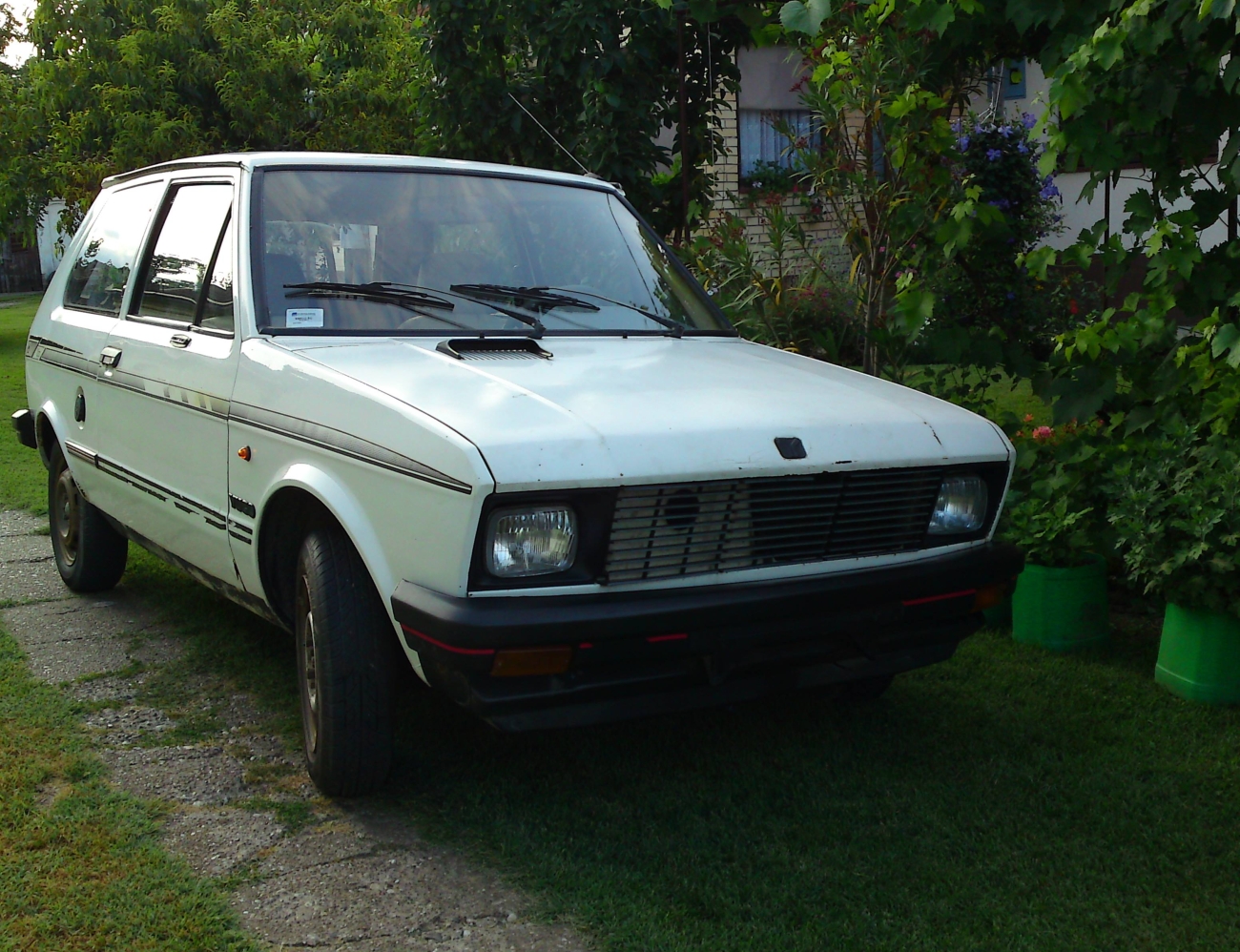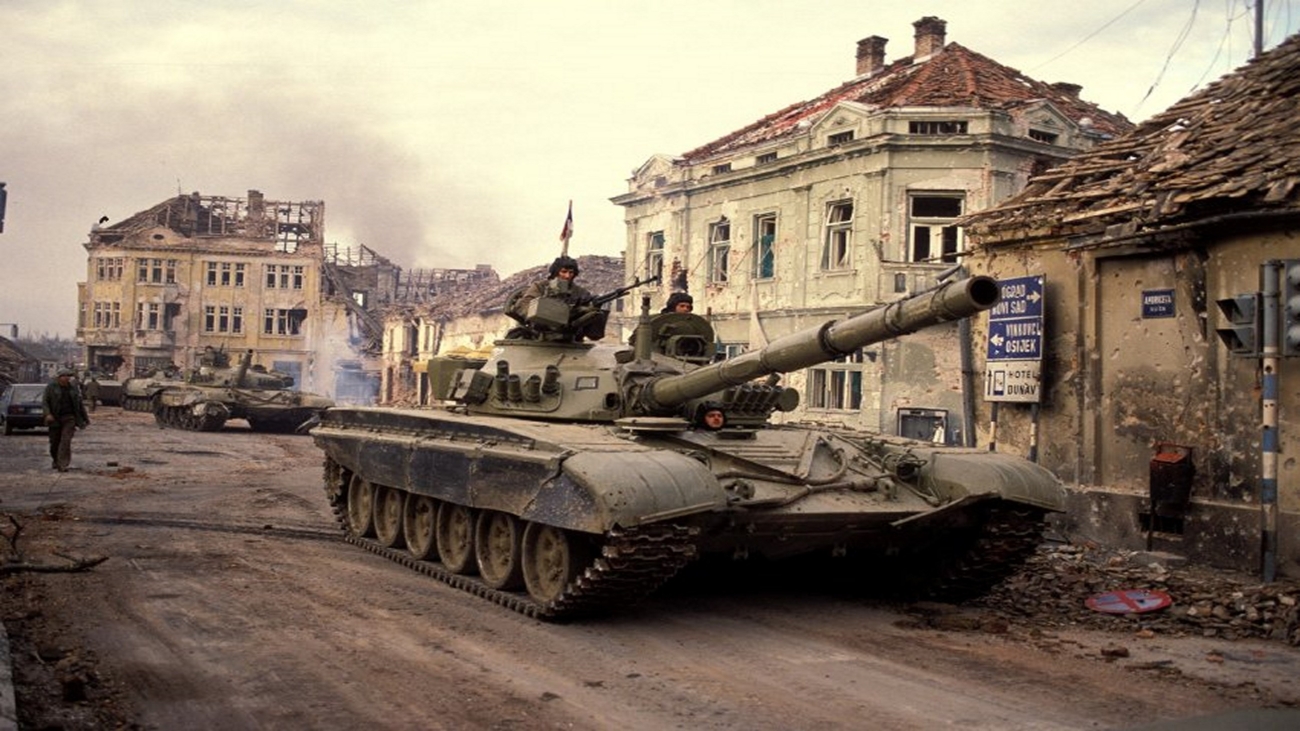Yugo
"It [Yugo] was not a piece of aluminum, but one of our family members." (Sanja Dragićević)
The year of 1980 was the year when the first Yugo car was produced (Vuic 12). It meant to represent the power of the idea of Yugoslav brotherhood, which united six nations after the end of the Second World War (Glenny 21). Only nine years later, a Yugo 45 was gifted to my mother, Sanja Dragićević, by her father, Dragoljub Petrić. She named it after her best childhood friend, Suzana, who passed away at the age of fifteen.
As my mother could not make any friends after Suzana's death, our Yugo 45 became a friend whom she shared her secrets with during her commute to the work place at a Shipbuilding Company in the city of Sremska Mitrovica (Sanja Dragićević). Although separated at the moment, on May 14, 2019 they will celebrate the 30th anniversary of their friendship. The impact the car has left on my parents can be accurately presented with my mother's statement that “it [Yugo] was not a piece of aluminum, but one of our family members” (Sanja Dragićević).
Yugo 45 - the treasure trove of memories
The garish whiteness of our family car was always the first thing someone would notice about it. Since it was regularly polished by my mother, it kept the same brightness it had on the day when it was purchased. Its exterior was decorated with a narrow strip that, if looked at from certain angles, looked as if it was fading. The position and size of headlights, bumper and the hood reminded me of the face of a human being. During rainy weather, the windscreen wipers would become Yugo’s thick black eyebrows which would prevent the water reaching the soft tissue of the eyes. On the other hand, if one looked at our car from a side, they would probably think that it was made out of an aluminum cuboid, with some of its sharp sides redesigned, so that it resembles a car.
With my eyes closed, I would clear my mind from the anger, and only let the voice of my father and the sound of Yugo fill my head with vivid images.
My memory of the family car is embodied in the memory of going to a doctor or a dentist in the early morning of a summer day. Since my father would take off to his job at around 6:20 in the morning, it caused much of the stress for someone who would usually wake up at around the midday. As soon as I entered the car, I would lay my head and body on the backseat in the fetal position, and close my eyes. I was never sleeping though. With my eyes closed, I would clear my mind from the anger, and only let the voice of my father and the sound of Yugo fill my head with vivid images. While laying down, my mind would slip into another world, and open the door to one far away from the one I lived in.
The pogrom of Serbs from Croatia
The streets of the city of Vukovar were filled with the boiling blood of deluded warriors, who fought against their neighbors and brothers, and in the name of nationalistic political leaders.
Only about fifteen years before I created the first memory with our family car, my father had used it as an emergency vehicle for the transport of wounded civilians. On September 15 1995, he was recruited by the Ministry of Health to help civilians, who suffered under the great pogrom of Serbs living in Croatia. Many people, who only a few years ago enjoyed the high living standards in Yugoslavia, found themselves trapped inside the endless chasm. As they were falling deeper, they were encountering the heat of the glittering redness of its core. The streets of the city of Vukovar were filled with the boiling blood of deluded warriors who fought against their neighbors and brothers, in the name of nationalistic political leaders. The only protection my father had from the glittering redness of the Earth's core was our family car. It did not only mean to protect him from bullets, but to, in the time of despair and moral crisis, remind him of his family and provide a dose of courage his metabolism lacked.
Yugo's wheels were once the extension of his [my father's] legs, and its comfortable interior the extension of his arms.
The only story known about his stay in Croatia is about a woman who lost her two children due to the attack of Neo-nazis who despised anyone of Serbian origin (Sanja Dragićević). Although seriously wounded, the only thoughts she was expressing in that moment were the ones filled with anger for the acts of deluded warriors, and a pain for the loss of her children (Sanja Dragićević). But, as my father concluded, the pain she felt for her children blocked the receptors of physical pain from reaching her brain, which made her survival possible. Under such circumstances, it can be said that Yugo's wheels were once the extension of his legs, and its comfortable interior the extension of his arms, which aimed protecting the people in need.
The significance of insignificant moments
The moment when I would lay my body in the fetal position on the backseat of my car introduced me to a world of experiences and memories deeply buried in my parents' past. The memory of my father is the only piece of knowledge I acquired while wandering in that world. The other pieces are mostly soaked with a feeling of guilt for the inability to investigate other corners of that space, as the doors that once allowed me the entrance to this world have suddenly started closing.
About the Author
Stefan Dragićević is a nineteen year old teenager from Serbia, who is currently studying at the St. Lawrence University. Apart from creative writing, he enjoys reading about the history of Balkans and solving problems in the areas of mathematics and programming.
Works Cited
Dragićević, Sanja. Personal interview. 22 Mar. 2019.
Grove, Jelena H. "From Brotherhood and Unity to Fratricide: Propaganda in Former Yugoslavia." B.A. Thesis. Portland State University, 2018. https://pdxscholar.library.pdx.edu/cgi/viewcontent.cgi?article=1624&con…. Accessed 24 Apr. 2019.
Glenny, Michael. “The Fall of Yugoslavia.” 3rd ed., Penguin Books, 1996.
Milekic, Sven, et. al. "Operation Storm: Croatia's Triumph, Serbia's Grief." Balkan Transitional Justice, 3 Aug. 2015, https://balkaninsight.com/2015/08/03/operation-storm-croatia-s-triumph-…. Accessed 23 Apr. 2019.
Vuic, Jason. “The Yugo: The Rise and Fall of The Worst Car in History.” Tantor Media, 2010.

